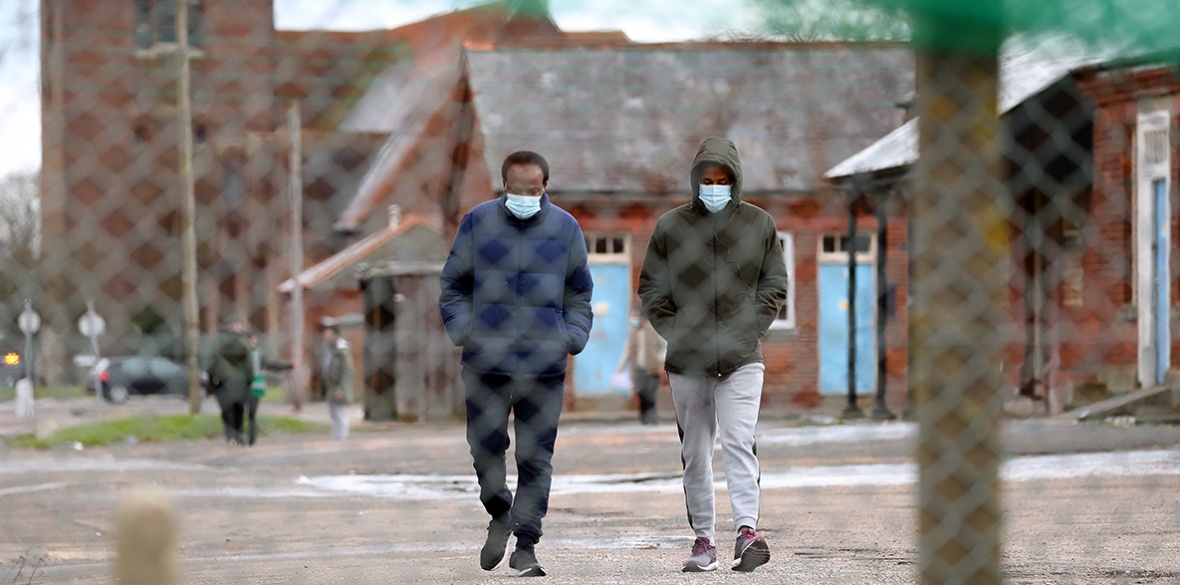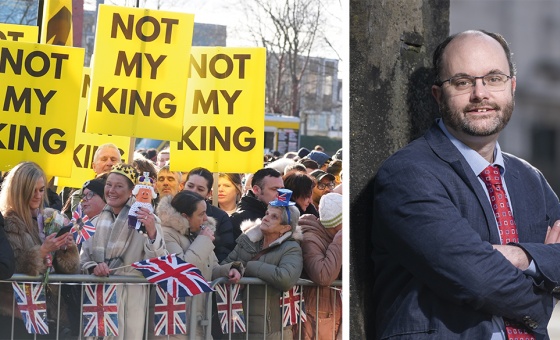This is the last article you can read this month
You can read more article this month
You can read more articles this month
Sorry your limit is up for this month
Reset on:
Please help support the Morning Star by subscribing here
A SEVEN-WEEK open invitation to offer recommendations as part of an independent review of the Human Rights Act ended yesterday, in a measure that could be a pretext to making changes to the law.
Except in cases where anonymity has been requested, the submissions are expected to be published on the government’s website in due course.
The government’s announcement in December that it was launching a review of the UK Human Rights Act was met with some surprise and exasperation given the scale of other, greater priorities such as the coronavirus pandemic and its impacts.
But the decision was also unsurprising given that it’s a Conservative government in power and there’s been a long history of Tories trying to change or scrap the 1998 Human Rights Act.
Prior to the 2010 election, former prime minister David Cameron had proposed replacing the HRA with a British bill of rights.
This was put aside during the coalition government years, but it resurfaced in 2015, when Cameron vowed to fix the “mess” of UK human rights law, in a speech and soundbites for The Sun.
In 2017, Theresa May made it clear she wanted to scrap the HRA. In 2019, she implied that it would be scrapped after leaving the EU.
Later, Boris Johnson’s manifesto claimed that it would be “updated.” But this changed a few months later in February last year, with new plans to suspend it.
In September, it then emerged that the government was planning to opt out of parts of the European Convention on Human Rights which the HRA incorporates into UK law.
But as the Brexit talks became entangled with talks on international agreements on security, Johnson appeared to have reached a deal that involved abandoning proposed changes to the HRA after EU chief negotiator Michel Barnier implied that it was a red-line issue for all other international agreements.
As such, the December decision to independently review the HRA begs the question of what exactly the government wants to do to the HRA given that it had only recently agreed not to alter it.
“A review could be a pretext to making some changes,” said Dr Reuvin Ziegler, associate professor in international refugee law at Reading University.
“There might not be changes to rules, but changes by tweaking how they are applied.”
Changes could also occur in stages, he explained, and that rather than leaving the remit of the European Court of Human Rights (ECHR) outright, the review might seek to make changes that set up a path to leaving it.
Among possibilities seen by Ziegler could be that of “keeping the HRA as it is but removing the obligation to take into account the jurisprudence of ECHR, followed by a push to change or redefine some articles.”
A misperception that’s hung over the HRA, both before and after Brexit, is that it’s in some way bound to EU legislation, although there’s no relationship at all.
The HRA was created in 1998 by Labour to incorporate into law the European Convention on Human Rights that was drafted by the Council of Europe in 1950 — Winston Churchill and British lawyers were famously instrumental in its design.
Nonetheless, appeals to nationalist sentiment have portrayed the HRA as being hamstrung by EU governance as a way of adding to anti-immigration and anti-EU sentiment.
In one of his fairly recent anti-immigration videos, for example, Nigel Farage even blames a (non-existent) “EU Human Rights Act” for failure to deport “illegal immigrants” arriving in the UK.
But assorted Tories and rightwingers have long been fixated with the view that HRA, as it is, prevents the government from deporting the numbers of foreigners and asylum-seekers it would like to, even though the HRA has repeatedly prevented multiple miscarriages of justice and rights abuses.
Following the announced review, Amnesty International, Liberty and other rights groups spoke out against scrapping the HRA, listing key reasons that it is so valuable.
“From Hillsborough to Grenfell to the appalling mishandling of the recent Covid crisis in care homes, we have never so badly needed a means to hold the government to account and we know that the Human Rights Act does that extremely effectively,” said Amnesty UK director Kate Allen.
In its wording, this current review only seems to be invite change by slow degree rather than actually scrapping it, however, focusing at first specifically on whether the “current approach risks ‘over-judicialising’ public administration and draws domestic courts unduly into questions of policy.” But these plans have still drawn criticism.
Last month former Supreme Court president Baroness Hale resoundingly lauded the HRA, telling a joint human rights committee: “I can’t myself think of a fix that could make things better, as opposed to potentially making things worse.”
“It’s legislation that works very well, which is why the government doesn’t like it,” explained one barrister at Garden Court Chambers.
“Parliament can already amend the courts’ interpretations, but it doesn’t,” he added. “And the media attention on foreign criminals is largely exaggerated.”
Greg O Ceallaigh, a barrister at Garden Court Chambers, also highlighted how the HRA critically prevents UK democracy being led by the untrammelled power of a small number of people.
Over many years the role of the right-wing media in pressing for the scrapping of the HRA has been extensive and unrelenting.
Typically, it will focus on a foreign individual who’s committed a serious crime, or terrorism, but hasn’t been deported, which it will then imply as being typical and one of a multitude of examples.
Focusing on a serious crime case, a lobby such as Migration Watch will then put together alarming headline figures on “foreign national offenders” avoiding details or breakdowns of natures of offences, but with the headlines appearing weekly in multiple right-wing papers as part of a wider racist drive to cut immigration numbers.
“The vast majority of deportation appeals fail,” said Mr O Ceallaigh. “It’s the ones that succeed that appear in the papers.”
In contrast to stories of foreign serious crime offenders winning appeals against deportation, he added: “I’ve seen more cases of families divided under horrible circumstances.”
Along with the ethical distortion of a deportation law which involves double-punishing criminals through combining both jail sentences and deportation, another disturbing trend he sees is that of minimising the connection of deportees to the UK.
These are the cases of all those who’ve been here from early childhood, possibly in and out of care, being deported to a country where they may have little or no connection of any kind.
Meanwhile, another media trope is that of making last-minute appeals seem like a legal ruse.
Disturbingly, the Home Secretary and Justice Secretary have fuelled this by scapegoating lawyers, branding them “activists” or, more recently, saying that they’re taking the country “for a ride,” never mentioning the brevity of removal notices for those in detention (72 hours) and difficulties getting legal advice in that time.
Along with incompetence and cronyism, pandering to right-wing media has been a consistent trait of this government so far, and if those papers are raising pressure for amending the HRA, it’s to be expected the government will seek to do so, possibly deciding that the best time would be when it really should be attending to greater priorities.
Raoul Walawalker is a feature writer at ImmiNews, part of an organisation of UK and Ireland immigration lawyers.










